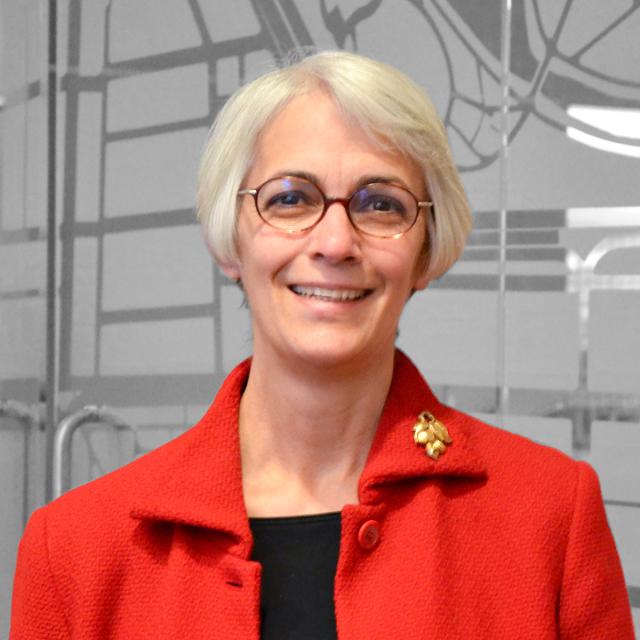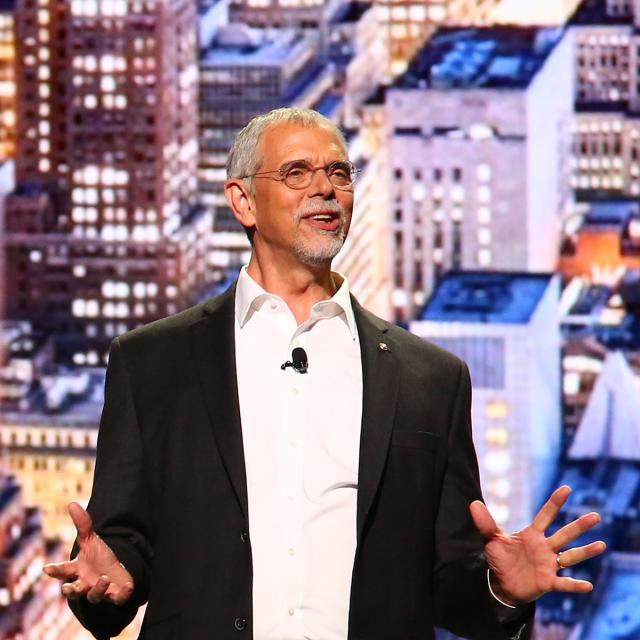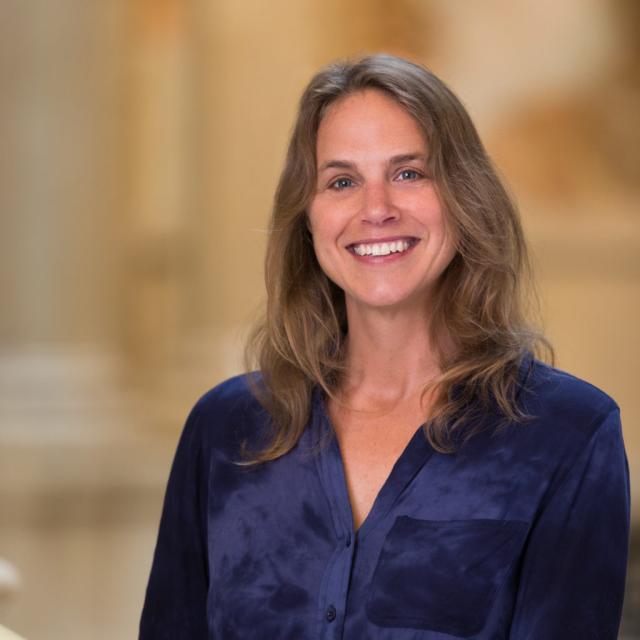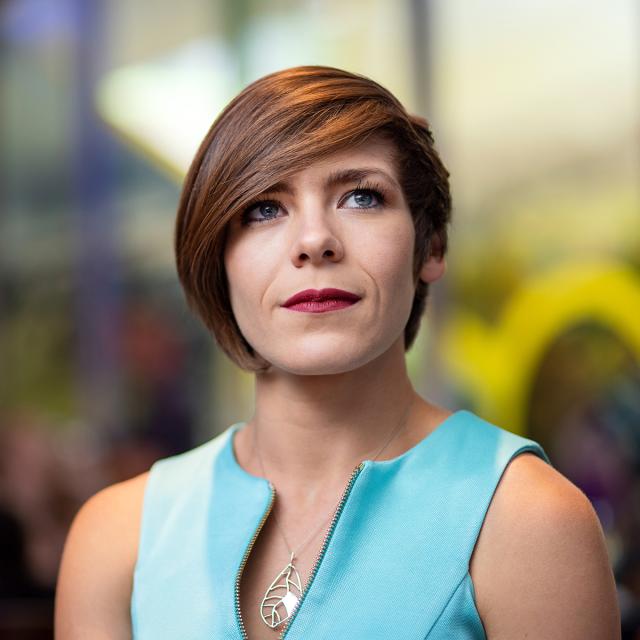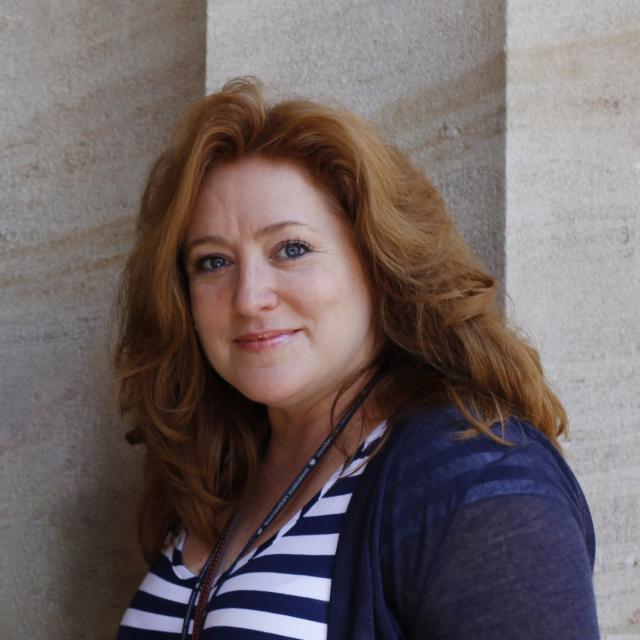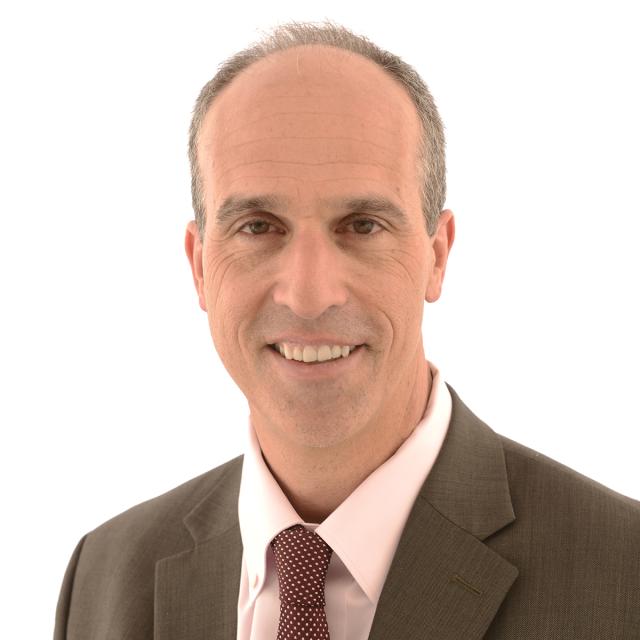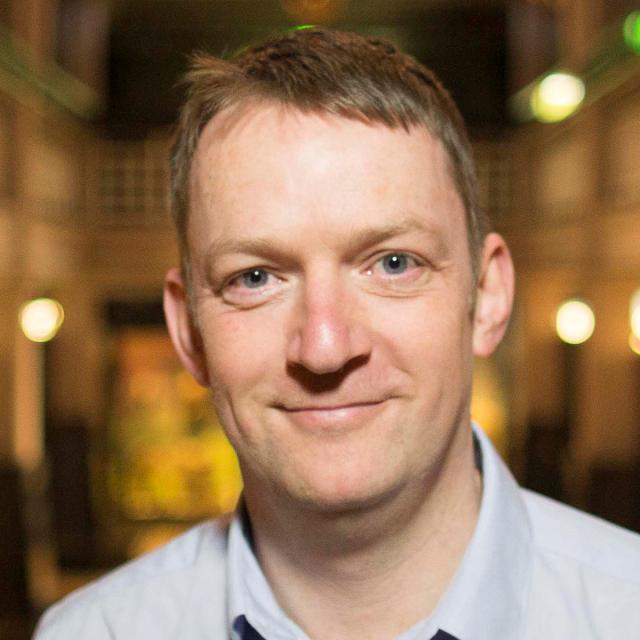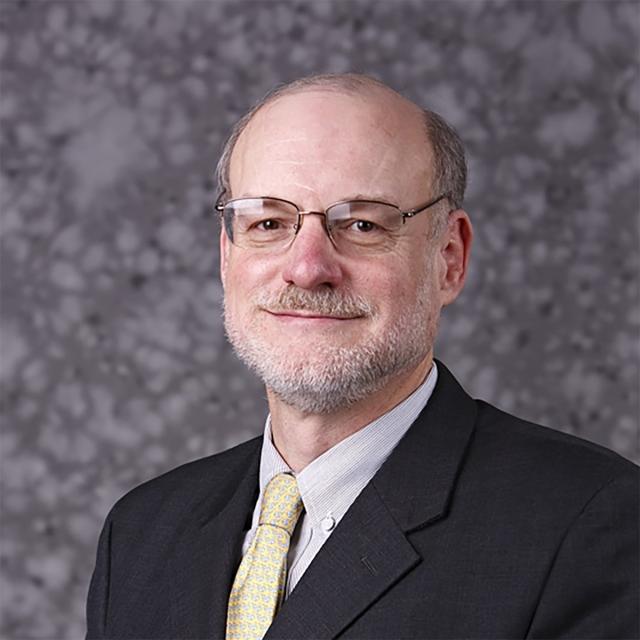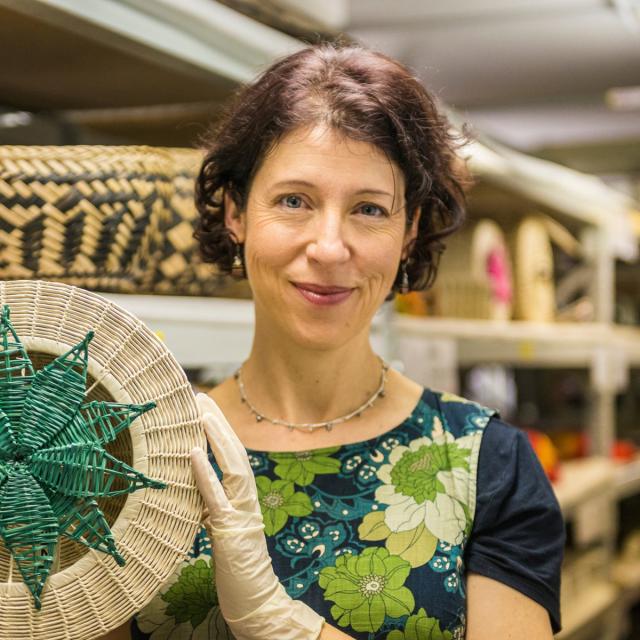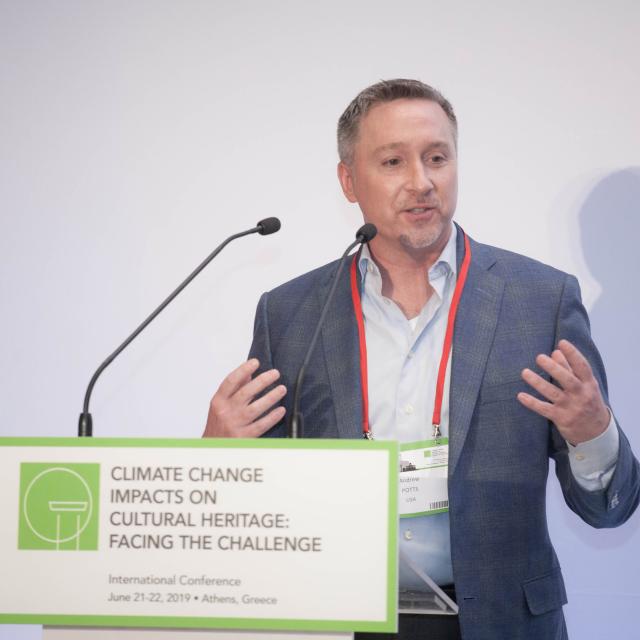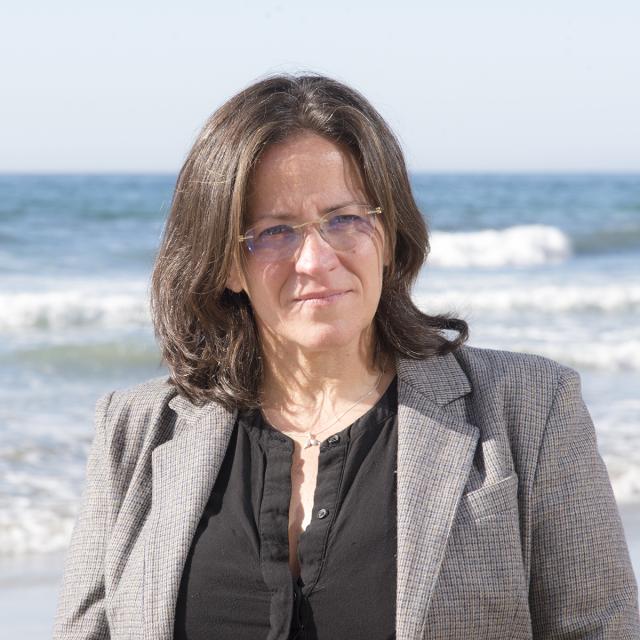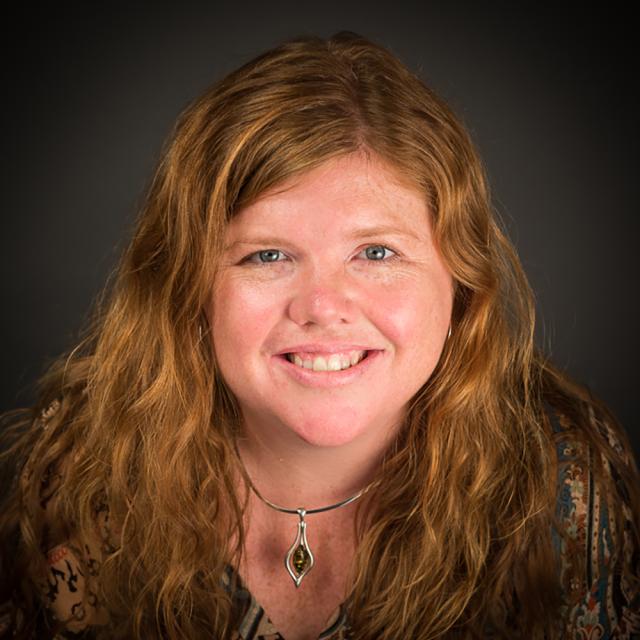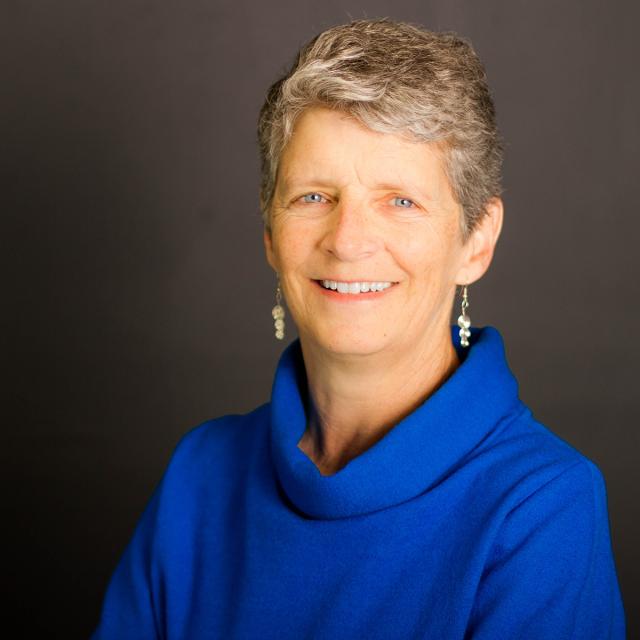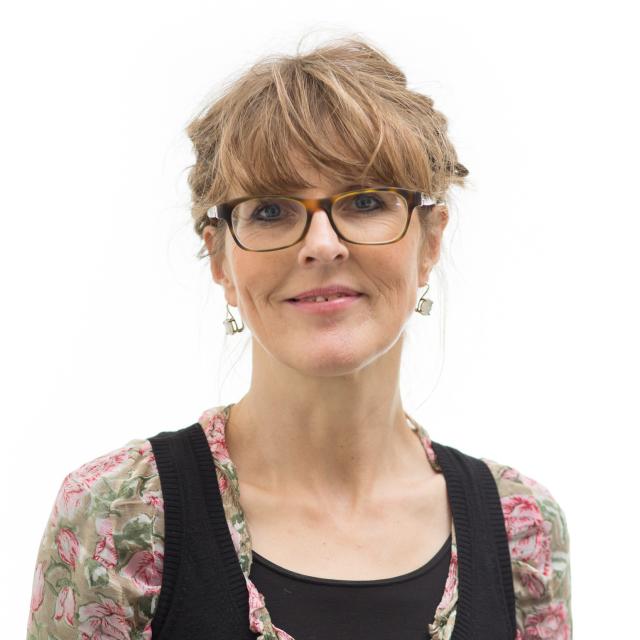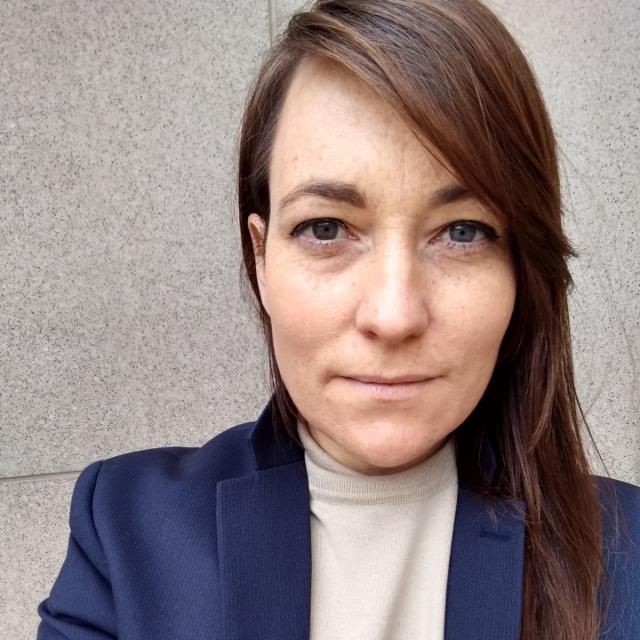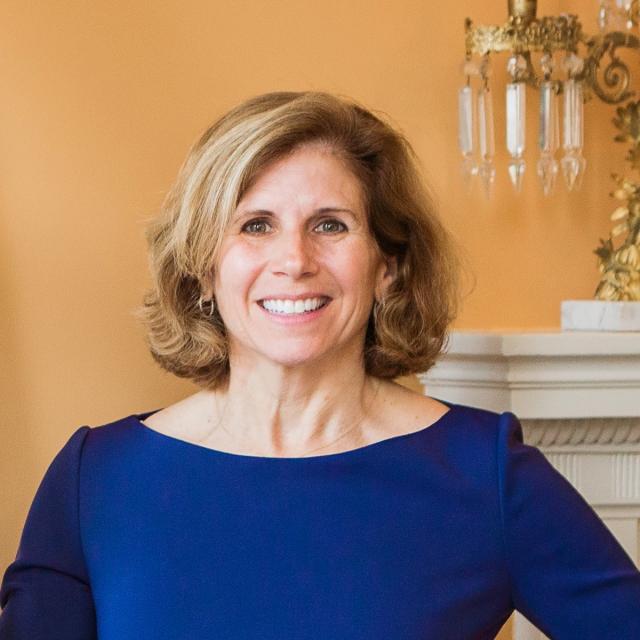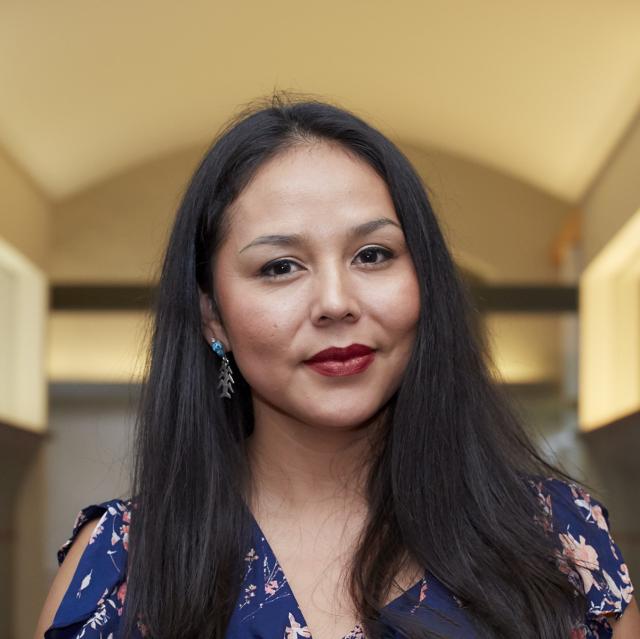Jean Carroon
Principal, Goody Clancy
Jean Carroon is a principal at Goody Clancy, a Boston-based design firm committed to building social value through a practice embracing architecture, planning and preservation. Carroon’s focus is on the opportunities inherent in the stewardship of existing places to shape a healthy resilient world. She combines an understanding of history and building technology with a commitment to transforming places – redefining their relevance, utility, and flexibility while sustaining and enhancing essential beauty and value.
Carroon is a fellow of both the American Institute of Architects and the LEED program of the U. S. Green Building Council. She has served as a peer reviewer in the Design Excellence Program of the General Services Administration since 2008. She is a frequent speaker, teacher and advocate for holistic design and the author of Sustainable Preservation: Greening Existing Buildings published by Wiley. She holds a bachelor's degree and a master's in architecture from the University of Oregon, and served as the president of the Boston Society of Architects in 2019.
Carl Elefante
Principal Emeritus, Quinn Evans Architects
Carl Elefante serves as a design principal on architecture, preservation, and community revitalization projects. Known for coining the phrase “the greenest building is one that is already built,” Elefante writes and lectures nationally on historic preservation and sustainable design topics. In 2018, he served as the 94th President of the American Institute of Architects. He is a fellow of the American Institute of Architects (AIA) and the Association for Preservation Technology (APT). Elefante attended the Pratt Institute School of Architecture and University of Maryland School of Architecture, Planning, and Preservation. He is an adjunct professor for the School of Architecture and Planning at the Catholic University of America.
Nicole Heller
Curator of Anthropocene Studies, Carnegie Museum of Natural History
Nicole Heller’s primary research is concerned with sustaining biodiversity in the face of global changes associated with the Anthropocene. For 15 years, she has worked at the interface between research and practice to pioneer climate change adaptation and mitigation in urban ecosystems, parks, and wildlands. Heller’s secondary research-practice is about environmental science communication. She has collaborated with journalists, designers, anthropologists, and artists in numerous creative communications about global change and solution making. Heller received a doctorate from Stanford University in biological sciences and a bachelor’s degree from Princeton University in ecology and evolutionary biology. She conducted postdoctoral research at University of California, Santa Cruz. She enjoys spending time with her multispecies family and neighbors.
Victoria Herrmann
President and Managing Director, The Arctic Institute
Victoria Herrmann’s research and writing focuses on climate change, community adaptation, resilient development, and migration. She currently serves as the principle investigator of the National Science Foundation funded “Arctic Migration in Harmony: An Interdisciplinary Network on Littoral Species, Settlements, and Cultures on the Move,” a major international initiative. As a National Geographic Explorer, she was the principle investigator for “America’s Eroding Edges,” traveling across the country interviewing 350 local leaders to identify what is needed most to safeguard coastal communities against the unavoidable impacts of climate change. Her current project, “Rise Up to Rising Tides,” is creating an online matchmaking platform that connects pro bono experts with climate-affected communities.
Herrmann teaches sustainability at American University and environmental communication at Georgetown University. She has been a Fulbright awardee to Canada, a Mirzayan Science and Technology Policy Fellow at the National Academies of Sciences, and a Gates Scholar at the University of Cambridge, where she received her doctorate in geography.
Amber Kerr
Chief of Conservation and Senior Paintings Conservator, Smithsonian American Art Museum
Amber Kerr is chief of conservation and senior paintings conservator at the Smithsonian American Art Museum. She oversees programming in the museum's Lunder Conservation Center; a facility with floor to ceiling glass walls that allow the public to observe the conservation staff caring for the collections. She received a master's degree from the Winterthur/University of Delaware in art conservation and is a dedicated advocate for raising professional and public awareness in conservation, preservation, and technical art history. Her scholarly publications have included research on the techniques of artists Henry Ossawa Tanner and Alma Thomas, as well as folk and self-taught artists in SAAM’s collection.
Kerr is a professional associate in the American Institute for Conservation, and a fellow with the International Institute of Conservation (IIC), where she serves as vice president, director of communications, and co-chair for the IIC Dialogue series. She also serves as an advisor for IIC advancement programs for emerging conservation professionals, and advisory chair of the IIC Student Poster Committee. Kerr is a founding member and past officer of education and outreach for the American Institute for Conservation Emerging Conservation Professionals Network (ECPN).
Kenneth Kimmell
President, Union of Concerned Scientists
Ken Kimmell has more than 30 years of experience in government, environmental policy, and advocacy. He is a national advocate for clean energy and transportation policies and a driving force behind UCS’s “Power Ahead” campaign with the goal of building a large and diverse group of clean energy leadership states.
Prior to joining UCS, Mr. Kimmell was commissioner of the Massachusetts Department of Environmental Protection in Massachusetts Governor Deval Patrick’s administration. As commissioner, he served as chairman of the Regional Greenhouse Gas Initiative, working with member states to reduce power plant carbon emissions by almost 50% through 2020.
Mr. Kimmell also served as general counsel at the Executive Office of Energy and Environmental Affairs, and spent 17 years as director and senior attorney at a Boston-based law firm specializing in environmental, energy, and land-use issues. Originally from New York, he earned his bachelor’s degree at Wesleyan University and his law degree at UCLA.
Henry McGhie
Founder, Curating Tomorrow
Henry McGhie has had a lifelong passion for nature and trained and worked as an ecologist. He worked in museums for nearly two decades, with an interest in using museums "to the max." McGhie founded Curating Tomorrow in 2019 to help museums and their partners enhance their contributions to creating a sustainable future. He has recently written a guide for museums on how to get started with the Sustainable Development Goals. He has helped broker partnerships between researchers, museums and policy workers, including with the United Nations. He is a member of the Sustainability Working Group established by ICOM in 2018, the IUCN Commission on Education and Communication, and the Education, Communication and Outreach Stakeholders recognized by UNFCCC. He was involved in getting museums recognized as key sites for climate change education and action in the workplan for the Paris Climate Change Agreement in 2018. He is the author and editor of three books on climate change communication, and the history of ornithology.
Scott Miller
Scott Miller, Deputy Under Secretary for Collections and Interdisciplinary Support, Smithsonian
Scott Miller is responsible for central planning and development of the Smithsonian’s vast collections (137 million objects) and interdisciplinary support operations, including collections management, conservation and preservation, and related functions. He also maintains an active research program as a curator of entomology at the National Museum of Natural History. His current research focuses on moths of Papua New Guinea and Africa, especially the integration of systematics, ecology, biogeography, and conservation of insects and plants in Papua New Guinea. Miller previously served as deputy under secretary for science, overseeing the Smithsonian’s science museums and research facilities, major research initiatives, collections management, exhibitions, and educational programs.
Before coming to the Smithsonian in 2000, Miller designed and implemented an international biodiversity and conservation program for the International Centre of Insect Physiology and Ecology in Nairobi, Kenya. From 1986 to 1997, Miller was chairman of the departments of entomology and natural science at the Bishop Museum in Hawaii. He earned a bachelor’s degree from the University of California at Santa Barbara and a doctorate in biology from Harvard University. He is a fellow of the American Association for the Advancement of Science and the Royal Entomological Society of London.
Jenny Newell
Manager of Climate Change Projects, Australian Museum
Jenny Newell is manager of Climate Change Projects at the Australian Museum in Sydney. Her particular interests are in material culture and the relationship between Pacific Islanders and their environments. Newell became increasingly concerned about climate change while working with Pacific communities in curatorial roles at the British Museum and the American Museum of Natural History. Now, she is focused on galvanizing engagement in the climate crisis within and through museums. Her books include Pacific Art in Detail (2011, British Museum Press), Trading Nature: Tahitians, European and Ecological Exchange (2010, University of Hawaii Press), and, as co-editor, Curating the Future: Museums, Communities and Climate Change (2017, Routledge). She is co-editor with Cameron Muir and Kirsten Wehner of the forthcoming book Living with the Anthropocene: Love, Loss and Hope in the Face of Environmental Crisis (2020, NewSouth). She convenes the Museums and Climate Change Network.
Andrew Potts
Coordinator, Climate Change and Heritage Working Group, International Council on Monuments and Sites (ICOMOS)
Andrew Potts is the coordinator of the Climate Change and Heritage Working Group for the International Council on Monuments and Sites (ICOMOS), which works on a variety of initiatives in line with ICOMOS’s view that heritage constitutes an invaluable repository of information and strategies to address climate change, even while those resources must also be safeguarded from climate impacts. He previously served as the ICOMOS Focal Point for the United Nations' Sustainable Development Goals. Potts practiced law for twenty years with a specialty in financing for sustainable development. He holds a juris doctor degree from Indiana University. He was formerly an associate general counsel for the National Trust for Historic Preservation, and received its John H. Chafee Trustees Award for Outstanding Achievement in Public Policy in 2008.
Isabel C. Rivera-Collazo
Assistant Professor on Biological, Ecological, and Human Adaptation to Climate Change, University of California, San Diego
Isabel Rivera-Collazo has taught on adaptation to climate change at the University of California, San Diego since 2016. Focusing on coastal and underwater contexts in tropical zones, her work specializes in understanding human vulnerability to climate and environmental change as she works to identify lessons from the past that are relevant in the present. She has also conducted research on the impact of climate change on cultural heritage, particularly coastal archaeological sites. Rivera-Collazo's most recent research project, DUNAS, combines sand dune restoration, cultural heritage, and climate change to stimulate community resilience at the Hacienda la Esperanza Nature Reserve on the northeast coast of Puerto RIco, in partnership with Para la Naturaleza (NGO) and local communities.
Rivera-Collazo earned a master's degree in the paleoecology of human societies and a doctorate in environmental archaeology from the Institute of Archaeology, University College London. She also completed graduate studies in maritime civilizations at the University of Haifa, in Israel, and holds a bachelor's degree in anthropology with an emphasis on underwater archaeology from the University of Puerto Rico, Río Piedras campus.
Erin Seekamp
Professor, Department of Parks, Recreation, and Tourism Management, College of Natural Resources, North Carolina State University
Erin Seekamp is a professor in the department of parks, recreation, and tourism management at North Carolina State University. As a social scientist, her research focuses on assessing and fostering capacity within individuals, organizations, and communities to address global change. Seekamp was a 2019 research fellow at the International Centre for the Study of the Preservation and Restoration of Cultural Property (ICCROM), where she expanded her work on climate adaptation planning of cultural resources to World Heritage Sites. She has published more than eighty peer-reviewed papers and reports, written nearly fifty extension publications, and has engaged more than 500 community members and practitioners in educational events. She earned a doctorate in natural resources from the University of Idaho.
Sarah Sutton
Principal, Sustainable Museums
Sarah Sutton is principal of Sustainable Museums and a LEED-accredited professional. She works with staff and leadership at cultural organizations as they develop sustainable solutions and foster climate action. She teaches in the Harvard University Extension School Museum Studies program, is co-chair of the American Association for State and Local History’s Committee on Environment & Climate, and is a committee member of the American Alliance of Museums’ Environment & Climate Network. She is a co-author of The Green Museum (as Sarah Brophy) and author of Environmental Sustainability at Historic Sites & Museums, both in second editions. She is a Salzburg Global Fellow.
Alison Tickell
Director, Julie’s Bicycle
Tickell established Julie’s Bicycle in 2007 as a non-profit company with the goal of helping the UK music industry reduce its environmental impacts and develop new thinking in tune with global environmental challenges. Julie’s Bicycle is now an international company covering the performing arts, heritage, and visual arts communities.
Originally trained as cellist, Tickell worked with seminal jazz improviser and teacher John Stevens, then spent several years building social arts impact projects. Since founding Julie’s Bicycle, Tickell has advocated relentlessly for climate action through new cultural practice. She has received several awards and is grateful to combine a rich and fulfilling work life in balance with family.
Meredith Wiggins
Science and Technology Policy Fellow, American Association for the Advancement of Science
Meredith Wiggins is passionate about championing the role of cultural heritage in climate change adaptation and mitigation. An archaeologist by training, her work explores the effects of climate change on both material culture and the transmission of cultural identities. She is particularly interested in promoting heritage in wider international policy as an integral part of sustainable development and of a just transition to a decarbonized world. As a 2019–2020 science and technology policy fellow at the American Association for the Advancement of Science based in Washington, DC, Wiggins is rethinking both the way international development agencies factor climate change into their work and how they can integrate cultural and environmental knowledge into future projects.
Ashley Robbins Wilson
The Graham Gund Architect, National Trust for Historic Preservation
Ashley Robbins Wilson, as the Graham Gund Architect for the historic sites at the National Trust for Historic Preservation, provides broad oversight on the conservation and preservation of both the architecture and landscapes of the Trust’s twenty-eight historic sites. With more than twenty-five years of experience as a preservation architect, Robbins Wilson specializes in modernizing and stewarding significant historic buildings and cultural landscapes to make them relevant within the modern built environment. Before working at the National Trust, she was a tenured professor at the Clemson University/College of Charleston graduate program for historic preservation in Charleston, SC, and in private architectural practice. She graduated from the architecture schools at the University of Virginia and the University of Notre Dame.
Janene Yazzie
Sustainable Development Program Coordinator, International Indian Treaty Council, Co-Convenor, Indigenous Peoples Major Group for Sustainable Development
Janene Yazzie, a member of the Dine (Navajo) Nation and resident of New Mexico, is an entrepreneur, community organizer, and human rights and climate justice advocate. Her work focuses on in infrastructure policy, integrated land and water management, and restoration and protection of traditional ecological knowledge systems. Since 2017, Yazzie has served as sustainable community development coordinator with the International Indian Treaty Council (IITC). She also represents IITC as the global co-convener of the Indigenous Peoples Major Group (IPMG) for the United Nations High-level Political Forum on Sustainable Development.
Yazzie is co-founder and CEO of Sixth World Solutions which works with Navajo Nation communities to develop projects, programs and policies that promote sustainability, environmental justice, and self-governance. She also co-founded the Little Colorado River Watershed Chapters Association, a community-led watershed planning initiative that exercises community governance and Indigenous Rights for integrated landscape planning and restoration.















